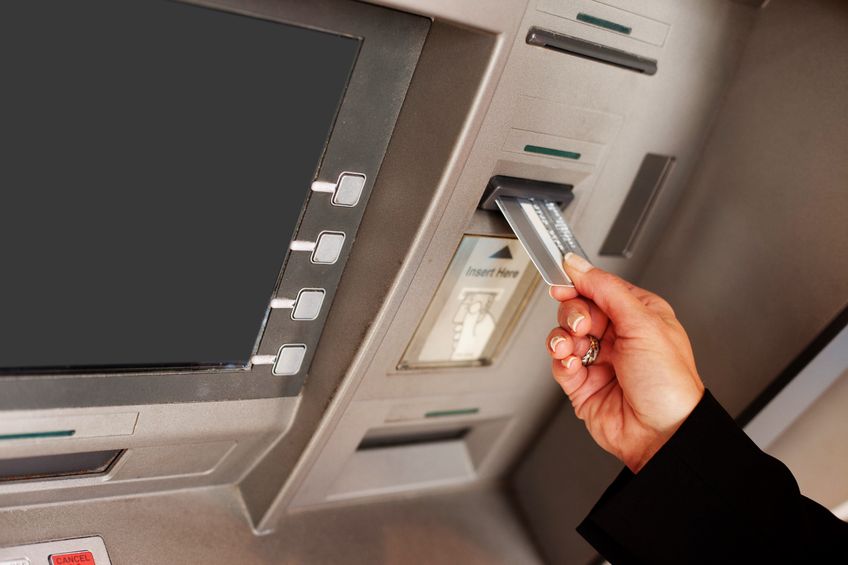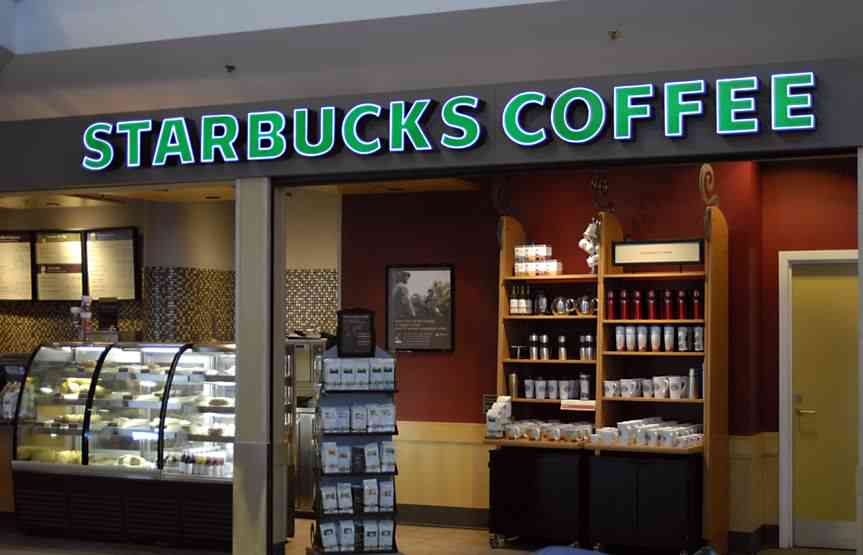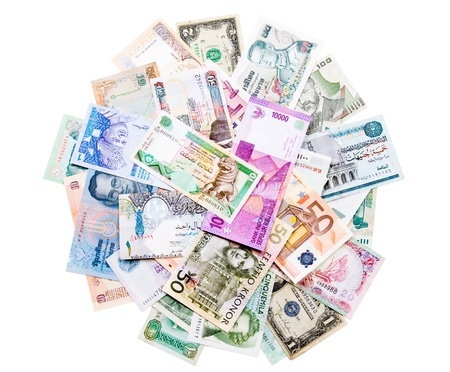One of the CIA travel recommendations leaked in a Wikileaks dump (“Classified Advice from the CIA Leaked on How to Travel Like a Spy [Hint: Don’t Fly United]”) was to try to dispose of Euros before returning home.
Apparently the record low amount of cash returned to the CIA at the end of a trip — or at least a record low for German travel, since the document was specifically tips for CIA travel to Frankfurt — was 52 euro cents.
While it’s not appropriate to convert CIA cash to personal use, there are plenty of ways for the rest of us to efficiently convert foreign currency back to our home currency (for most of us, US dollars).
I get foreign cash by taking it out from an ATM. You’ll get a bank’s conversion rate, rather than the premium charged by a money changer. Even if your bank charges foreign currency conversion fees on these withdrawals, that’s still a savings, though fortunately my bank does not (and if you’re a frequent international traveler, yours shouldn’t either).

To get rid of what’s left:
- Pay your hotel bill on your way out of the hotel you know what’s left, pay any hotel folio balance with cash and leave the remainder on your credit card.
- Add funds to your Starbucks card. In some – though not all – countries you can add funds in-store in the local currency. That will convert to the currency of the country your card is registered in.

- Refill gas in your rental car. If you’ve rented a car, stop to refill gas on the way to the airport. You should do this anyway (unless your rarified rental car status gets you market price refill based on actual usage — this applies to about six of you). Pay in cash, refill to the amount of cash you’ve got left. And then do a separate transaction to get the tank full paid with a credit card.
- Save the cash for your next trip. like to have cash on arrival and not have to dart for an ATM at the airport. So in any country, with any currency, that I’m likely to visit/use again I don’t turn back any excess cash before leaving. I keep Euros, Pounds, Baht, Pesos (of various nationalities), Dong, Dollars (of multiple kinds). Because I’ll use them all and in most cases within 18-24 months.
That means I’m holding excess cash (I have more foreign currency in total in the form of cash than I do US dollars) and am therefore not earning a rate of return on it. So it may not be the most efficient. But I view it as a convenience premium to have that cash when I need it, to save myself two in-country transactions.
- Bring it in to your bank. This is last ditch but you’re probably still going to do better than at the airport Travelex. There are a handful of more obscure currencies where I had some leftover, unlikely to use, and sitting in my home safe. Last year I brought a stack of small amounts of various currencies in to convert to cash and deposit into the bank. It wasn’t as efficient, but it was better than sitting uselessly at home.
I’m not at all a fan of the CIA recommendation, “Buy something in Duty Free, because you’re awesome and you deserve it!” Don’t spend money just because it’s in your pocket, foreign currency is real money it isn’t free and doesn’t make your purchases free.

What’s your foreign currency routine? How do you buy it, and do you convert it back to your home currency when you leave a country?


So your “expert” advice on how to get rid of foreign currency is to…. spend it. Or maybe save it for the next trip. That’s some real solid advice there . Thought leadership at it’s best..
I sometimes buy holiday or birthday gifts for people at the end of a trip with the leftover currency. But these tips are good. In many countries the airport exchange rate is awful; in others it’s not much of a spread at all and can be a viable option.
If the store, service, merchant, etc, does not take credit cards it does not exist for me. Same goes for tipping, I dont mind it but if I cant add it to the credit card slip tough luck. At most I carry US$10 in my wallet. In the very few cases that I know before hand I cant avoid the cash payment Ill get the exact amount.
I can do this because 95% of my travel is business so I learned to play with the system. When its leasure I get a little bit more cash out but not that much and any residual I spend it the same as you do.
I started this method after my first year of traveling, my safe looked line a Christmad tree by all the cash colors.
Two things:
1. For a lot of money, I spend it over the last day on meals and stuff. I never get out more than $100 USD, so it works for me.
2. I like keeping a few dollars as a souvenir. It adds up over time, but its not making a difference in the long run.
If you are on a tour, use it to tip your tour guide.
If you take a taxi to the airport, pay it in cash.
Once you switch to an atm fee reimbursed debit card, there’s no reason to take out large chunks of cash at a time, thus lowering the chances of having excess cash at the end of a trip
As for duty free, I always have the total wine app downloaded and ready to go for price comps. Sometimes you find some incredible deals compared to retail, just need to know your stuff
You can spend it on food or other items at the airport—they deduct the amount you give them and put the remainder on your credit card- also, many airports collect “foreign” moneys for charity.
Good to remember that PAPER 20 GBP (British pound) notes lose all value on Sept 30. Earlier this month I found two in my pile of foreign currency, exchanged them at an airport currency desk for 36+ Euros. Not happy about the fees, but it was better than nothing.
MIles writes that GBP20 notes “lose all value on Sept. 30”. This is not true. They can be exchanged for new banknotes. At first, some banks may do this but eventually only the Bank of England in London (roughly near St. Paul’s Cathedral) will do it long term.
I keep my foreign currency for the next trip. However, I got burned when countries demonetize money. With British 1 pound coins, I exchanged them, which is rare. With GBP 20 notes, I will bring them to the Bank of England. With Sweden, I exchanged them for US currency. With Switzerland, I might exchange them at the Swiss National Bank in Zurich (though Bern will do it, too).
I still have currency from Canada, Japan, Korea, Singapore, Australia, and the EU. I might try to get rid of my Korean money.
I have spent the last bit of money on a partial payment for the hotel but that risks going to the airport with no local currency. On the other hand, airport stuff can be expensive. Souvenirs in India are much more expensive at the airport, like triple the cost or more.
My son loves to get leftovers and collects the. I try not to exit with say more than $20-30USD from any country but he loves the coins and various bills.
On 8/19, I landed at IAD from LHR at around 9 or 10 PM. The foreign currency exchange kiosk was closed. ♂️ Now I’m stuck holding on to a bunch of British pounds until I can get to a branch of my bank.
You help yourself and the USA by bringing the foreign currency back and depositing it in your bank account. You haven’t spent the money and saved it (yay!) and have contributed to strengthening the USA’s foreign exchange reserves (yay!)
https://www.leftovercurrency.com/ is one of the few places that will take coins, old bills, etc. The exchange rate isn’t great but a good solution for bills and coins from 3rd world countries that you are unlikely to visit again. I dropped money from about 20+ countries at their London office and received a paypal transfer within a week.
I keep stable currencies for my next trip, specifically Euros, Pounds, Sing $ and Yen, plus Mex pesos.
Just got recently 800 euros cash from VAT refunds for purchasing Louis Vuitton bags in Paris, that Starbucks idea may have been a good one to try out if the conversion rate were an exact one!
If it’s only a few bucks, I pick up some airport gimcracks for people back home. Check your desk, I left you something last week!
My last few trips to Europe I’ve not even had to use cash anywhere. Two weeks no cash, all mobile payments, very nice. USA really needs to get with the program.
Some airports have receptacles for collecting leftover money – especially coins. The proceeds go to charities such as the Red Cross.
@Kyle
I’m with you on this. Living in Malta for the past three and traveling extensively throughout Europe, I rarely ever use cash. Why use it. Bus and taxis all take cards. Snack bars, where your bill might be two euros, take it.
And, food for thought, tipping is not a big thing in Europe. Workers get good pay, full benefits, health care and a free education. In fact, their full packages are better than most American hospitality employees.
If you’re feeling generous you can send it to UNICEF’s Change for Good.
I accidentally ended up with excess Vietnamese currency. I could not find a bank that would accept them. But I get my haircut at a business that is owned by and employs folks from Vietnam. I figured some would like to purchase my currency at the interbank price, thus saving them fees. They either plant to travel to Vietnam, or to send currency to relatives there. I was correct. One of the employees bought my currency.